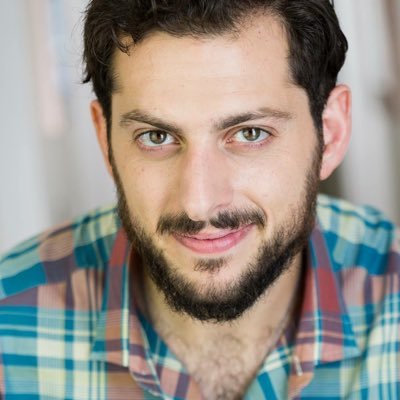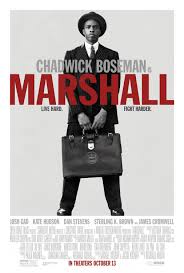Interview: Michael Bernardi of “Marshall” and “Fiddler on the Roof”
Posted on October 20, 2017 at 1:08 pm
I loved seeing Herschel Bernardi play Tevye in “Fiddler on the Roof” in the 1960’s and it was a great pleasure to speak to his son, Michael, who played the role in the Broadway revival. He also appears in a brief but very compelling role in “Marshall,” the film about one of Thurgood Marshall’s early criminal cases.

What was your audition like for “Marshall?”
I was in the middle of Fiddler on the Roof on Broadway and I was in rehearsals for my first shot at playing Tevye as an understudy when I got word about this audition for a project with Thurgood Marshall. I got extremely excited and so I knew I had to do everything in my power to make that happen.
The scene in Marshall has a lot going on and there’s a lot of subtext. You don’t want to come in all over the place. It’s very specific what’s at stake in the scene. So I remember being in rehearsal, being in 1905 Eastern Europe wearing my shtetl wardrobe and then getting on a subway and walking into the world of Marshall and finding the Zen place within myself to just serve the story as much as possible. That probably helped because there was no time to overthink it. Also being in Fiddler was such an incredible resource of information, to be already immersed in that world, to really understand what that immigrant experience was and what was at stake, what people were fighting for as they arrived in America and what the cost would be if things didn’t work out. So I was very pleased with how the scene showed so many of those colors and just trying to plumb those circumstances as much as possible as in a very short time span tell that story of what was at stake for the Jewish people in that time period and at the same time fighting for the future and fighting for equality and fighting for acceptance.
What difference has your father’s legacy as an actor made in your life?
He died when I was one and a half. But there were family members that told me his story and he left behind such incredible legacy, so my entire life I’ve been blessed to have random people coming up to me just stopping dead in their tracks and going, “Your father meant so much to me and my family.” Just this look in their eyes of such reverence and love when they speak about him. I feel like the love that I may have missed out on from my father has been given to me through the love that he gave to so many people. So in that regard my entire life I’ve definitely have felt that the presence of the story of Fiddler and what that story means and has meant to millions of people.
It’s a very specific story, and yet it seems to have such universal impact.
Because we are human and because really Fiddler on the Roof was created structurally as an empathy machine. Especially that first act of Fiddler on the Roof was constructed to find that common humanity of human beings through humor and to really show that this is a family that you’re meeting that has the same worries and daily foibles and conflicts of any family that has ever lived.
I think Fiddler is about family and I think that’s why it’s so universal; it speaks to everyone’s kitchen table and then once you achieve that kind of familiarity with an audience and that audience recognizes themselves and their family in these people onstage that come from a completely different culture, you find that union. And then in the second act you can really start introducing the plight and the specific trials of that cultural group and once you make that connection then that audience can go on that ride and truly have an empathetic experience. I know that everything I write, everything that I’m involved in, that’s my greatest goal, is to endear an audience and find that commonality amongst people, not the lowest common denominator amongst people but the truth that we all share.
A great way of doing that is through comedy and making people laugh and literally having that experience of sitting in a theater and finding something funny on stage and experiencing that the person next to you and the person in the row in front of you is also laughing and that person is a total stranger, that person may be wearing a hijab, the other person may be transgender, but you are all sharing a communal experience.
It sounds to me as though live performance is especially meaningful to you.
It is a tradition, that’s the word, right? It is a tradition in my family because it wasn’t just my father who was a prolific performer on stage but also my grandparents; they originated a lot of the roles that Sholem Aleichem had brought into the mainstream in the Yiddish theater for American audiences. There are pictures of my grandfather on a stage in the Yiddish theater pulling around a milk cart and my grandmother was famous for playing the role of Yenta and this is all before all these stories were put together into the musical called Fiddler on the Roof. So that stage experience, that communion with an audience that you can feel in the moment is profound and extremely addictive and there’s really nothing like it and it can never really be captured on film. That being said when a film is truly great I think that it’s really filmmakers that understand those principles of reaching out to the audience and structuring things in a way to induce that community experience so it all comes back to theater ultimately. But filmmaking, you don’t have that present moment give and take with an audience and so it’s an act of faith.


